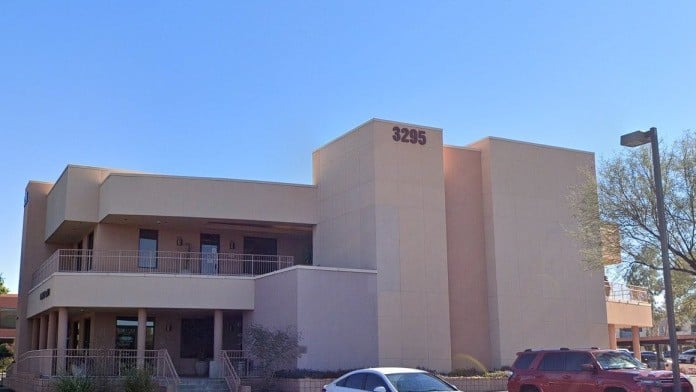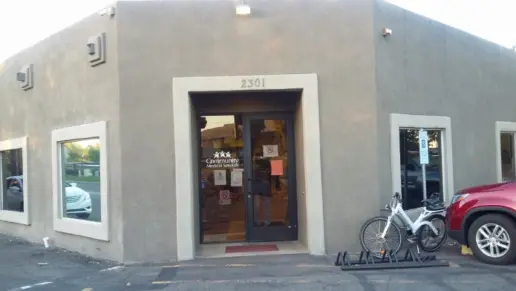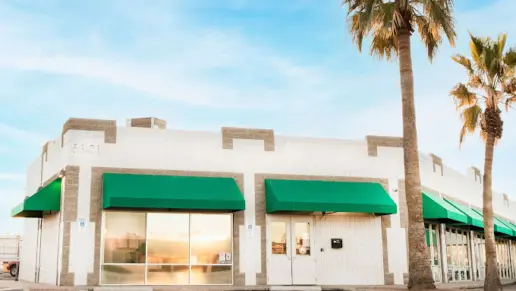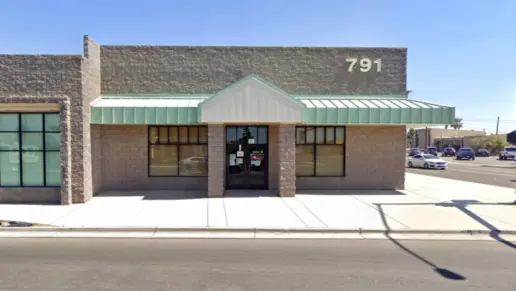One of the therapists who treated my sister was completely unsuitable to treat her. He didn't have enough empathy or patience to listen to her, and even if he did, he didn't have enough training to treat the issues that she had.
About Clarvida Of Arizona
Clarvida Of Arizona, formerly Pathways of Arizona, provides substance use services in Northwest Tucson. In order to inspire a commitment to change, their Seven Challenges Program is intended for adults and adolescents who are struggling with alcohol and drug use. Through this program people are encouraged to take stock of their lives, think about the effects of their substance use and get ready for success as they embrace change.
The Seven Challenges include reflecting on the reasons for substance use as well as having open conversations about drugs and alcohol. They help you evaluate any harm that may result from use and learn to acknowledge both internal and external impacts. Next, you make deliberate choices about drugs and life as well as think about future objectives and aspirations. The last phase is commitment to carrying out these choices and resolving any problems that may come up.
The program is developed in collaboration with a diverse group. It promotes inclusivity by honoring the participants’ varied backgrounds. Their comprehensive approach addresses not only substance use behavior but also its root causes and associated lifestyle problems.
Candid conversations about alcohol and drug use are fostered by this program by providing a forum for people to freely share their experiences. Participants gain awareness of the needs that substance use satisfies, the potential harm it can cause and the dangers of continuing such a lifestyle as a result of this understanding.
In order to address co-occurring issues, clinicians collaborate with families and youth enabling clients to come up with constructive alternatives. This cooperative strategy gives clients the resources and encouragement they need to bring about long lasting change.
 Payment Options
Payment Options
Private insurance
Self-pay options
Military insurance
Medicaid
Medicare
Military Insurance
 Levels of Care
Levels of Care
 Outpatient
Outpatient
Outpatient Programs (OP) are for those seeking mental rehab or drug rehab, but who also stay at home every night. The main difference between outpatient treatment (OP) and intensive outpatient treatment (IOP) lies in the amount of hours the patient spends at the facility. Most of the time an outpatient program is designed for someone who has completed an inpatient stay and is looking to continue their growth in recovery. Outpatient is not meant to be the starting point, it is commonly referred to as aftercare.
 Intensive Outpatient
Intensive Outpatient
Intensive Outpatient Programs (IOP) are for those who want or need a very structured treatment program but who also wish to live at home and continue with certain responsibilities (such as work or school). IOP substance abuse treatment programs vary in duration and intensity, and certain outpatient rehab centers will offer individualized treatment programs.
 Programs
Programs
 Adult program
Adult program
 Program for men
Program for men
 Program for women
Program for women
 Children program
Children program
 Hearing impaired program
Hearing impaired program
 LGBTQ program
LGBTQ program
 Military program
Military program
 Insurance
Insurance
Our Policy: Clarvida Of Arizona works with several private insurance providers and also accepts private payments when possible, please contact us to verify your specific insurance provider.














 Treatment
Treatment
 Alcoholism
Alcoholism
The goal of treatment for alcoholism is abstinence. Those with poor social support, poor motivation, or psychiatric disorders tend to relapse within a few years of treatment. For these people, success is measured by longer periods of abstinence, reduced use of alcohol, better health, and improved social functioning. Recovery and Maintenance are usually based on 12 step programs and AA meetings.
 Drug Addiction
Drug Addiction
Drug rehab in Arizona is the process of treating individuals who are dependent on a particular addictive drug. Because addiction is complex, this treatment typically includes a variety of interventions that address the many physical and emotional issues involved.
 Dual Diagnosis
Dual Diagnosis
Many of those suffering from addiction also suffer from mental or emotional illnesses like schizophrenia, bipolar disorder, depression, or anxiety disorders. Rehab and other substance abuse facilities treating those with a dual diagnosis or co-occurring disorder administer psychiatric treatment to address the person's mental health issue in addition to drug and alcohol rehabilitation.
 Opioid Addiction
Opioid Addiction
Opioid rehabs specialize in supporting those recovering from opioid addiction. They treat those suffering from addiction to illegal opioids like heroin, as well as prescription drugs like oxycodone. These centers typically combine both physical as well as mental and emotional support to help stop addiction. Physical support often includes medical detox and subsequent medical support (including medication), and mental support includes in-depth therapy to address the underlying causes of addiction.
 Substance Abuse
Substance Abuse
Substance rehabs focus on helping individuals recover from substance abuse, including alcohol and drug addiction (both illegal and prescription drugs). They often include the opportunity to engage in both individual as well as group therapy.
 Clinical Services
Clinical Services
 Cognitive Behavioral Therapy
Cognitive Behavioral Therapy
Also known as CBT, cognitive behavioral therapy in Arizona is one of the most common types of psychotherapy. It offers a structured method of counseling that effectively treats substance use disorder and dual diagnosis disorders.
 Group Therapy
Group Therapy
Group therapy is any therapeutic work that happens in a group (not one-on-one). There are a number of different group therapy modalities, including support groups, experiential therapy, psycho-education, and more. Group therapy involves treatment as well as processing interaction between group members.
 Individual Therapy
Individual Therapy
Individual therapy for drug and alcohol addiction includes focused attention on the unique challenges that trigger addictive behavior. During individual therapy sessions, you have a safe space in which to discuss stressors and emotional struggles. Therapy fosters trust and open communication that helps develop personalized strategies to overcome addiction.
 Trauma Therapy
Trauma Therapy
Trauma therapy addresses traumatic incidents from a client's past that are likely affecting their present-day experience. Trauma is often one of the primary triggers and potential causes of addiction, and can stem from child sexual abuse, domestic violence, having a parent with a mental illness, losing one or both parents at a young age, teenage or adult sexual assault, or any number of other factors. The purpose of trauma therapy is to allow a patient to process trauma and move through and past it, with the help of trained and compassionate mental health professionals.
 Eye Movement Desensitization and Reprocessing
Eye Movement Desensitization and Reprocessing
Eye Movement Desensitization and Reprocessing (EMDR) is a therapeutic approach that addresses trauma and post traumatic stress disorder using bilateral stimulation, typically guided eye movements. This helps the brain reprocess traumatic memories. The process uses a structured, eight phase protocol that transforms negative thoughts and emotions into adaptive, positive beliefs and feelings.
 Family Therapy
Family Therapy
Family therapy involves sessions where members of the family discuss how addiction has affected them individually and collectively. Therapists can guide families in developing coping strategies that help support their loved one's recovery while also focusing on their own emotional health.



